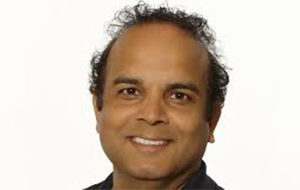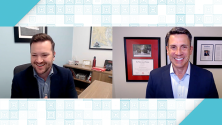Can CIOs move up into higher management positions? Yes – if they take the right approach. That's the message from Tim Kasbe, who became COO of Gloria Jeans, headquartered in Rostov-on-Don, Russia, after serving as CIO for Intrexon Corp. and Sears Holdings Management Corp.
In an interview with The Enterprisers Project, he explains how it can be done.

The Enterprisers Project (TEP): After several high-profile CIO positions, you've moved into a COO role. How can other CIOs do the same?
 Kasbe: Be hungry to learn things that are far from your domain expertise. Gain respect by delivering value across all organizations in your company. If you are ready with knowledge and experience, the right door will open.
Kasbe: Be hungry to learn things that are far from your domain expertise. Gain respect by delivering value across all organizations in your company. If you are ready with knowledge and experience, the right door will open.
So many of these things are about trust. And delivering results plays a big role in gaining trust over the long haul. So, I keep focusing on what I can learn today that may be of value in the future. In my case, luck played a part as well.
TEP: What should CIOs who aspire to become COOs be doing right now?
Kasbe: There are many successful CIOs who have become great business leaders. John Hinshaw at HP, Kevin Holt at Delhaize America, Bruce Johnson at Sears, Maynard Webb (now Yahoo! chairman), and Ashish Chauhan at Bombay Stock Exchange all stand as good models of CIOs who have gone on to lead their respective businesses. In each and every case, you see these leaders leading the business to the point of gaining trust from the board before they are entrusted with bigger responsibility. When that happens, I guess that is the right time.
TEP: How has your experience as a CIO helped prepare you for the COO role?
Kasbe: Technology touches all parts of the business. It's up to individual CIOs how deeply they are involved in the business. I don't mean just having intellectual curiosity about the operational and support business units, but also having passion for the business and an ability to paint the vision of the future.
Fortunately, today technology is leading and enablement happens fast. This certainly creates opportunities for leaders to go the extra business mile and start adding value beyond the technology domain. An area where the business is struggling is a good place to start. For example, businesses are having difficulty exploiting the explosion of data and speed of analytics. And we haven't even seen all the data that is about to make its way from the Internet of Things. Technology leaders may find this a natural opening to find ways to add business value.
TEP: You are located in the Chicago area, yet you hold a visiting scholar position at Stanford and are the COO of a Russian company whose stores and customers are in Eastern Europe. How do you make it work?
Kasbe: The Stanford role is a treat. I thrive in this as it takes me to Palo Alto, California regularly, where the vibe is completely different. Folks there live by an "anything is possible" mindset. And I use that as a spark for energy and innovation in addition to fulfilling my duties at Stanford.
I started doing doctoral studies by distance at Duke because I found myself reading online articles and not enough books. So this helps me discipline myself to read more books and study important topics, in my case, the ethics of super-intelligence. Stanford also gives me opportunities to visit my friends who are doing meaningful work among the homeless in the Tenderloin in downtown San Francisco. This is a huge issue to be resolved in the backyard of Silicon Valley. When you are doing a foreign assignment, be sure to maintain a home base in your home country. Chicago is part of that solution.
TEP: As you likely know, most CIOs move on from their employers after an average of just over four years. What do you think most holds back CIOs from advancing to COO or other high-level roles within their organizations?
Kasbe: The CIO gig is a tough one. It's a political role and one of the easiest targets. Granted, IT is a sitting duck for finger-pointing in organizations. Therefore, setting an agenda for the organization, regularly getting buy-in on that agenda from stakeholders, and uncompromisingly delivering against that agenda is critical.






